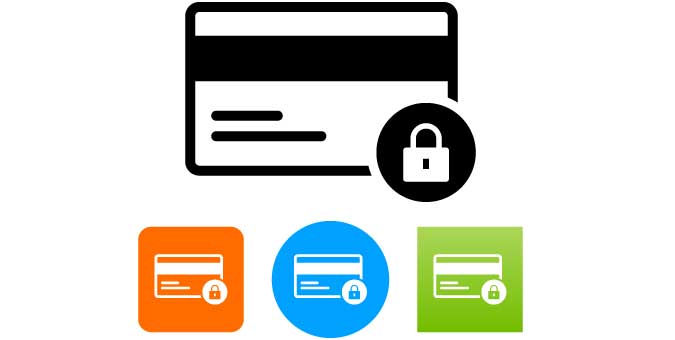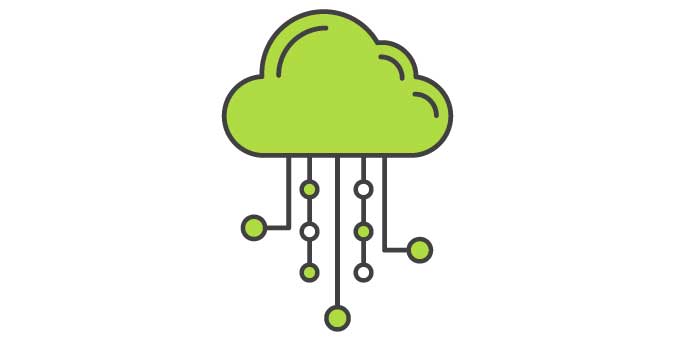Let's Talk !
Should you build, or buy? This is the million-dollar question.
There are several maintenance and developmental costs involved in building your own payment gateway from scratch. You’d be paying much less to use an external payment gateway system than you would if you were to create a payment gateway system yourself.
It can get very expensive to create your own payment gateway system from scratch. However, opting for a custom platform will provide you with the solutions that you require without breaking the bank. So, if you were to invest in a custom platform rather than a newly developed platform, then you’ll be investing in a long-term product that is optimized to meet your specific business needs.
Table of Contents
A payment gateway should allow merchants to accept digital payments quickly, securely, and easily. The primary component of any secure payment gateway is to process transactions in a way that keeps your customer’s money and data safe. A custom payment gateway typically requires a larger investment in terms of time and money, however, this custom payment gateway solution will dramatically help your business grow and prosper. A secured payment gateway helps you gain the trust of your customers so they are willing to make transactions.
There is a vast array of payment gateways to choose from in today's market, each with their own benefits and drawbacks that affect the services you can offer through that platform. Determining the pros and cons of every off-the-shelf software can make the process of choosing the right payment solution very time consuming and tedious.
Below, we will discuss the pros and cons of opting for a custom payment gateway, the primary components of a payment gateway portal, differentiating factors for your payment gateway, and what it is that merchants are looking for.
Pros
Save on Payment Gateway Fees – Off-the-shelf payment gateway solutions usually involve a high sign-up cost and fees associated with every transaction made, which can eat up a large portion of your profit over time. With your own payment gateway, you save on these long-term fees and sign-up costs.
Custom Features – Even if you manage to find a reasonably prices off-the-shelf product, you can still find yourself paying too much in fees, as well as limiting yourself with restrictions. For example, a payment gateway owned by a third party may not support recurring payments and multi-currency transactions, which would limit your ability to process such transactions. With your own payment gateway, you can customize and add new features depending on your business needs and requirements.
Offer Payment Gateway Products – You can offer and sell your payment gateway as a product to other merchants, ISOs, and Agents.
Cons
Payment Gateway Development Costs – There are several maintenance and development costs associated with developing a new payment gateway from scratch. The initial cost of creating your payment gateway is typically higher than paying the associated fees to use an external payment gateway; however, by opting to go with a custom platform you are also investing in a long-term product for your company that is optimized to meet your specific business needs.
Payment Processor Integration & Certification Cost – Integrating with payment processors is time-consuming and requires going through a lengthy certification process. Using an off-the-shelf payment gateway is usually much simpler and faster within this respect, as you essentially pay for the convenience of utilizing a payment gateway that has already been fully developed and established.
Handle Settlement Reports – Payment processors send settlement reports in a raw format.
Integration with Multiple Processors – Integration to different payment processors provides multiple options for your merchants to choose from when selecting the acquiring bank they want to use to create a settlement account. This also helps you provide competitive transaction fees, as different payment processors have different interchange fees that depend on factors, like the merchant's transaction volume.

Security – PCI Compliance & Fraud Management – Every merchant requires a secure payment gateway to help them gain the confidence of their customers. Merchants also look for fraud detection mechanisms built into payment gateways to avoid chargebacks and other issues that result from processing fraudulent purchases.
Additionally, your user data requires a robust framework and protection policy. Your system must be able to receive customer information and process payment transactions on a secure network. Payment Gateway Developers must utilize best practice and secure coding procedures during development in order to ensure that the gateway is compliant with all financial regulations. Some things to keep in mind when developing for compliance include:
Data retention periods
Data anonymization
Restricted access to the data for your employees and third-party providers
Customers have the right to know what personal data is stored, and for what purpose.
The right to be forgotten
Scalability to Add New Features – Every merchant should be able to adapt to the evolving world of online payment processing through a secure payment gateway. Payment gateways must also be able to handle spikes in transactions such as on Black Friday or Tax Holiday Sale. The upcoming surge and worldwide acceptance of new payment methods, such as the BitCoin currency and contactless payment, are some examples of why merchants must have a payment gateway that they can easily customize and update.
Disputes/Chargeback & Arbitration – Merchants will benefit from a payment gateway that has an interface to report and handle disputes from issuing banks.
Stuck With a Single Processor – A payment gateway integrated with a single processor will not be able to offer competitive fee rates to merchants. The payment gateway will also not be able to offer multiple options for creating settlement accounts between banks and merchants.
Manual Processing of Settlement Reports From Processor – The settlement reports coming from processors need to be manually parsed in order to be presented in a readable format, which can be a very time consuming and cumbersome job.
Not Supporting Recurring Payments – Most merchants do not want to store a customer's credit card information on their site and will prefer to look for a tokenized approach for accepting recurring payments from their customers.
Not Providing an Off-Site Payment Interface – Merchants tend to look for a "pay page" within a payment gateway to redirect their customers for processing ad hoc payments.
APIs For The Outside World – Building an easy and simple to use API to be used by merchant application.

Enhanced Security (3D Secure Transactions) – Merchants always look for security measures added in the payment gateway that will reduce chargebacks.
Ability to Handle Disputes, Chargeback & Arbitration – Merchants need a good interface and reporting mechanism to view and manage their chargebacks.
Providing Off-Site Payment Interface – Merchants typically opt to have a "pay page" for their payment gateway to submit and process ad hoc payments.
Supporting Recurring Payments – Merchants do not want to store a customer's credit card details on their site and will often prefer to look for a tokenized approach for accepting recurring payments.
Customer Support – Merchants will seek round the clock customer support to make sure that their business is not negatively affected by glitches on the payment gateway side. Building a custom gateway allows you to incorporate customer support solutions such as Zendesk in the development stage alleviating the need for integration further down the line.
Owning a payment gateway that is designed to your specifications can be a valuable tool for your business. It allows you to provide a single, integrated solution for point of sale (POS) and payment processing, which you can then offer to merchants as a replacement of the current payment gateway they may be using.
However, to ensure that merchants are willing to part with their current provider, your payment gateway must be secure to reduce the risk of chargebacks and have a wider range of options for choosing an acquiring bank for creating settlement accounts. It should also offer competitive fees, faster settlement, excellent customer support, and high-quality reporting.
Building a payment gateway will enhance your commercial capabilities. Injecting your payment platform with features to support financial processes, such as settlements, account balances and payout features will multiply the value of your custom solution.
For more information on payment gateway and processing solutions, visit www.chetu.com/payments/gateways-processors.php
Disclaimer:
Chetu, Inc. does not affect the opinion of this article. Any mention of specific names for software, companies or individuals does not constitute an endorsement from either party unless otherwise specified. All case studies and blogs are written with the full cooperation, knowledge and participation of the individuals mentioned. This blog should not be construed as legal advice.
Chetu was incorporated in 2000 and is headquartered in Florida. We deliver World-Class Software Development Solutions serving entrepreneurs to Fortune 500 clients. Our services include process and systems design, package implementation, custom development, business intelligence and reporting, systems integration, as well as testing, maintenance and support. Chetu's expertise spans across the entire IT spectrum.
- See more at: www.chetu.com/blogs
Privacy Policy | Legal Policy | Careers | Sitemap | Referral | Contact Us
Copyright © 2000-2024 Chetu Inc. All Rights Reserved.
